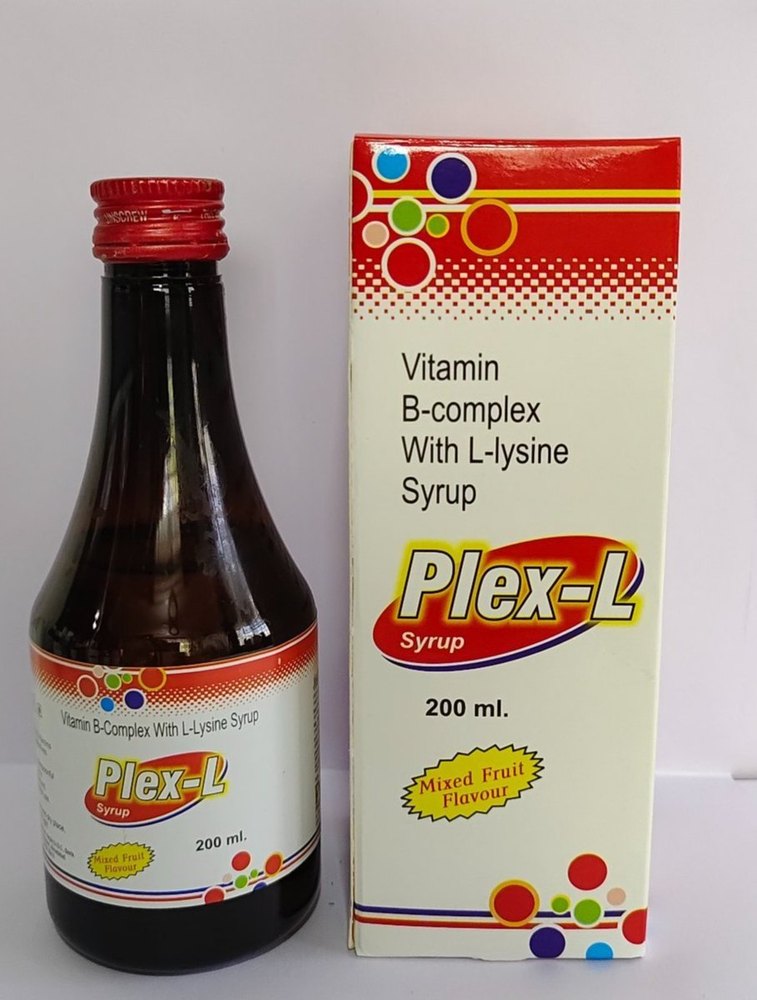Epilex Syrup-200ml
Epilex Syrup-200ml is an oral solution primarily containing Sodium Valproate 200 mg per 5 ml. Sodium Valproate is a broad-spectrum antiepileptic drug, meaning it is effective against various types of seizures. It is also used as a mood stabilizer and for migraine prevention. In Nepal, Epilex is commonly manufactured by Abbott India Ltd.
Mechanism of Action: Sodium Valproate is believed to exert its effects primarily by:
- Increasing Brain Levels of GABA: It enhances the levels of Gamma-aminobutyric acid (GABA), which is the main inhibitory neurotransmitter in the brain. By increasing GABA, it reduces neuronal excitability and inhibits nerve transmission, leading to a calming effect and helping to prevent seizures.
- Modulating Sodium Channels: It may also directly stabilize neuronal membranes by affecting voltage-gated sodium channels, similar to some other AEDs, further reducing excessive electrical activity.
₨230.00
Ask about productDescription
“Epilex Syrup-200ml” is a widely recognized brand of an antiepileptic drug (AED) available in Nepal.
Epilex Syrup-200ml: Comprehensive Overview
Product Overview: Epilex Syrup-200ml is an oral solution primarily containing Sodium Valproate 200 mg per 5 ml. Sodium Valproate is a broad-spectrum antiepileptic drug, meaning it is effective against various types of seizures. It is also used as a mood stabilizer and for migraine prevention. In Nepal, Epilex is commonly manufactured by Abbott India Ltd.
Mechanism of Action: Sodium Valproate is believed to exert its effects primarily by:
- Increasing Brain Levels of GABA: It enhances the levels of Gamma-aminobutyric acid (GABA), which is the main inhibitory neurotransmitter in the brain. By increasing GABA, it reduces neuronal excitability and inhibits nerve transmission, leading to a calming effect and helping to prevent seizures.
- Modulating Sodium Channels: It may also directly stabilize neuronal membranes by affecting voltage-gated sodium channels, similar to some other AEDs, further reducing excessive electrical activity.
Therapeutic Uses (Indications): Epilex Syrup is used in the management of:
- Epilepsy (Seizures/Fits):
- Simple and Complex Absence Seizures: Characterized by brief periods of lost awareness, often without convulsive movements.
- Multiple Seizure Types: Including absence seizures, myoclonic seizures (sudden muscle jerks), and tonic-clonic seizures (grand mal seizures, involving full-body convulsions and loss of consciousness).
- Partial (Focal) Seizures: Both simple and complex partial seizures.
- It is often used when a patient has a combination of seizure types.
- Bipolar Disorder: It is used to treat manic episodes associated with bipolar disorder, helping to stabilize mood and prevent extreme changes.
- Migraine Prophylaxis: It can be used to prevent migraine headaches.
- Trigeminal Neuralgia: Sometimes used off-label for this severe facial nerve pain.
Dosage and Administration:
- Oral Solution: Epilex Syrup is an oral solution. It typically comes with a measuring device (spoon or syringe) to ensure accurate dosing.
- Highly Individualized: The dosage is highly specific to the patient’s condition, age, weight, and response. It is usually started at a low dose and gradually increased by the doctor.
- Frequency: It is often taken once or twice daily, as directed by the physician. It can be taken with or without food, though taking it with food can help reduce gastrointestinal upset.
- Consistency: It’s crucial to administer the syrup regularly at the same time(s) each day to maintain consistent blood levels and ensure effective seizure control.
- Do NOT stop suddenly: Never discontinue Epilex Syrup abruptly without consulting a doctor. Sudden cessation can lead to a significant increase in seizure frequency or severity (status epilepticus), which can be life-threatening. The dose must be tapered gradually under medical supervision.
- Missed Dose: If a dose is missed, administer it as soon as remembered unless it’s almost time for the next dose. Do not double the dose.
Side Effects:
Epilex Syrup, like all medications, can cause side effects. Some are common and mild, while others can be serious and require immediate medical attention.
Common Side Effects:
- Gastrointestinal: Stomach pain, nausea, vomiting, diarrhea, dry or sore mouth, swollen gums. Taking it with food can often help reduce these.
- Neurological: Drowsiness, sleepiness, tiredness, headache, tremors (shakes in a part of your body), unusual eye movements (nystagmus), dizziness.
- Weight Gain: A common side effect, due to increased appetite.
- Hair Changes: Thinning hair, changes to the color or texture of your hair.
- Menstrual Irregularities: Irregular or delayed periods in females.
Serious (but less common) Side Effects (Seek immediate medical attention if you experience these):
- Liver Problems (Hepatotoxicity): This is a serious and potentially fatal side effect, especially in children under 2 years of age and those on multiple antiepileptic drugs. Symptoms include sudden and repeated vomiting, severe tiredness, lethargy, loss of appetite, abdominal pain, jaundice (yellowing of skin/eyes), dark urine, and swelling of the legs. Regular liver function tests (LFTs) are crucial, especially during the first 6 months of treatment.
- Pancreatitis (Inflammation of the Pancreas): Severe abdominal pain (especially in the upper abdomen, radiating to the back), nausea, vomiting, and fever.
- Blood Disorders: Easy bruising, unusual bleeding (due to low platelet count – thrombocytopenia), or increased infections (due to low white blood cell count). Regular complete blood counts (CBC) are recommended.
- Severe Skin Reactions: Rare but life-threatening rashes like Stevens-Johnson Syndrome (SJS) and Toxic Epidermal Necrolysis (TEN). Symptoms include widespread rash, fever, flu-like symptoms, blistering, and peeling skin, particularly around the lips, eyes, mouth, nose, and genitals.
- Allergic Reactions (Hypersensitivity Syndrome/DRESS syndrome): Rash, fever, swollen lymph nodes, facial swelling, and organ involvement.
- Suicidal Thoughts or Behavior: Patients and caregivers should monitor for any changes in mood, behavior, or the emergence of suicidal ideation.
- Hyperammonemia: Too much ammonia in the blood, leading to symptoms like confusion, lethargy, vomiting, and problems with balance/coordination.
- Cognitive Impairment: Memory loss, lack of concentration, or other cognitive changes.
Precautions and Warnings:
Before starting and during treatment with Epilex Syrup, it is crucial to inform your doctor about your complete medical history and adhere to all precautions.
- Pregnancy: Epilex (Sodium Valproate) is generally NOT recommended during pregnancy due to a definite and significant risk of birth defects (e.g., neural tube defects like spina bifida, facial and limb malformations) and neurodevelopmental disorders (e.g., lower IQ, autism spectrum disorder) in the child. If you are pregnant or planning to become pregnant, discuss this with your doctor immediately. They will assess the risks and benefits and may consider switching to a safer alternative AED or prescribe high-dose folic acid supplementation (5 mg daily) starting even before conception.
- Women of Childbearing Potential: If you are a woman of childbearing age, your doctor will discuss the risks of Valproate in pregnancy and ensure you are on effective contraception.
- Breastfeeding: Sodium Valproate passes into breast milk. While the amount is small, monitor the baby for drowsiness, feeding difficulties, or liver issues. Consult your doctor to weigh the benefits and risks of breastfeeding.
- Liver Problems: Epilex is contraindicated (not recommended) for patients with severe liver problems or a history of severe liver disease, especially if drug-induced. Use with extreme caution in patients with any liver impairment. Regular liver function tests are essential.
- Children under 2 years: Use with extreme caution, especially when used in combination with other AEDs, due to a significantly increased risk of fatal hepatotoxicity.
- Pancreatitis: Contraindicated in patients with pancreatitis or a history of severe pancreatitis.
- Urea Cycle Disorders: Contraindicated in patients with known urea cycle disorders (rare genetic conditions where ammonia builds up in the body).
- Kidney Problems: Use with caution; dosage adjustment may be needed.
- Driving and Operating Machinery: Epilex can cause drowsiness, dizziness, and affect vision and coordination. Avoid these activities until you know how the medication affects you.
- Alcohol: Avoid alcohol consumption as it can worsen central nervous system side effects and potentially increase seizure risk.
- Drug Interactions: Sodium Valproate has numerous and complex drug interactions. Inform your doctor about all other medications you are taking, including:
- Other Antiepileptic Drugs: Can affect levels of Phenobarbital, Phenytoin, Carbamazepine, Lamotrigine, etc.
- Blood Thinners: Can increase the effect of warfarin.
- Aspirin and other salicylates: Can increase Valproate levels.
- Antibiotics: Certain antibiotics (e.g., Carbapenem agents like Imipenem, Meropenem) can drastically reduce Valproate levels, leading to loss of seizure control.
- Contraceptive Pills: Estrogen-containing products (including oral contraceptives) may affect Valproate levels.
- Blood Tests: Regular blood tests are necessary to monitor drug levels (therapeutic drug monitoring), liver function, platelet counts, and other blood parameters throughout treatment.
- Systemic Lupus Erythematosus (SLE): Use with caution in patients with SLE.
- Weight Monitoring: Patients should monitor their weight, as weight gain is a common side effect.
Prescription Information:
Epilex Syrup-200ml is a prescription-only medication (POM). This means:
- It cannot be purchased over-the-counter without a valid prescription from a licensed medical practitioner (typically a neurologist or psychiatrist).
- The doctor will determine the appropriate starting dose, titration schedule, and maintenance dose based on the patient’s individual needs and response.
- Regular follow-up appointments are essential for monitoring efficacy, managing side effects, and performing necessary laboratory tests.
Additional information
| form | syrup |
|---|







Reviews
There are no reviews yet.